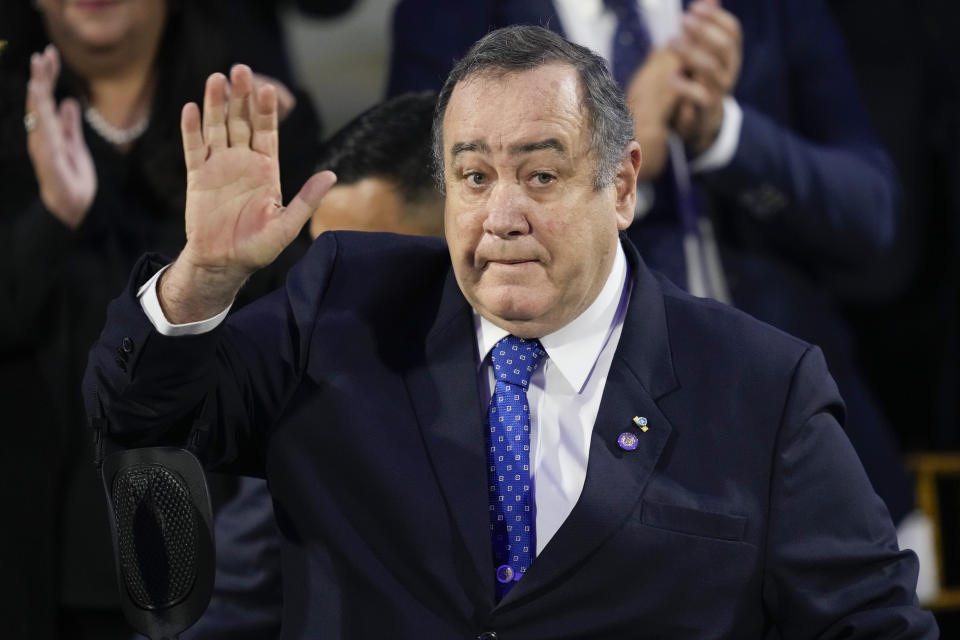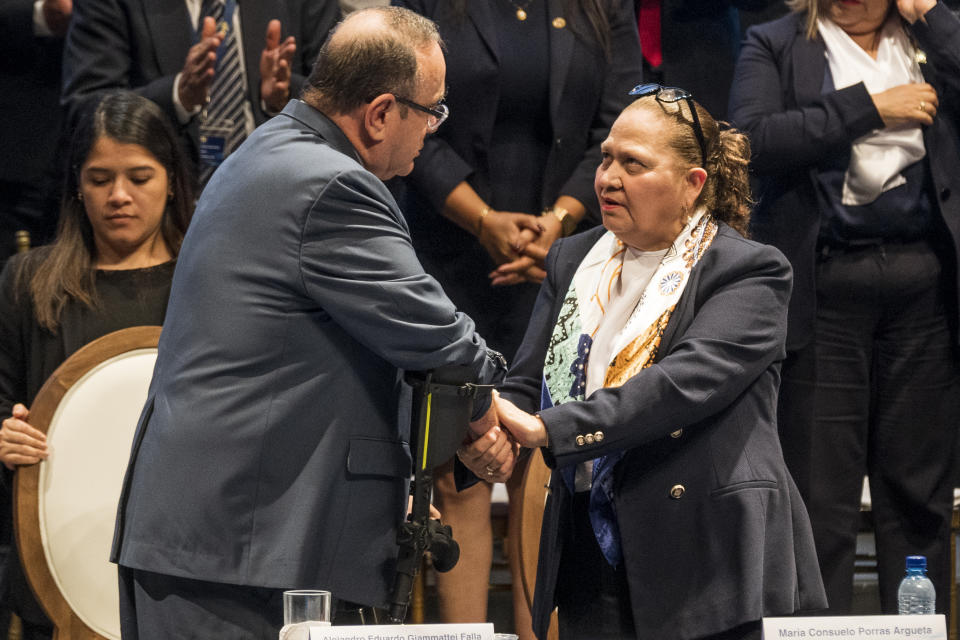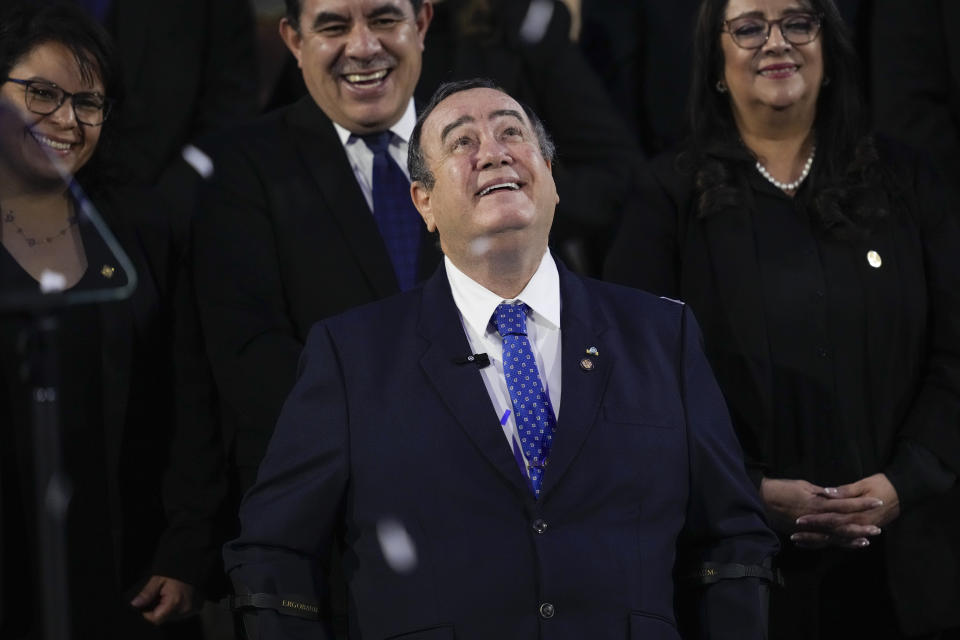US bars ex-Guatemala President Alejandro Giammattei from entry 3 days after he left office
GUATEMALA CITY (AP) — The U.S. State Department barred former Guatemalan President Alejandro Giammattei from entering the United States, accusing him Wednesday of “significant corruption” three days after he left office.
The Biden administration had become increasingly critical of Giammattei’s administration as Guatemalan prosecutors sought to head off Sunday's inauguration of new President Bernardo Arévalo, who has vowed to crack down on corruption.
“The State Department has credible information indicating that Giammattei accepted bribes in exchange for the performance of his public functions during his tenure as president of Guatemala, actions that undermined the rule of law and government transparency,” State Department spokesman Matthew Miller said in a statement.
Corruption allegations swirled around Giammattei for much of his term, but prosecutors who received the accusations were pushed out by Attorney General Consuelo Porras — herself already sanctioned by the U.S. government — and the inquiries did not advance.
The U.S. assistant secretary of state for Western Hemisphere Affairs, Brian A. Nichols, had warned last week that the U.S. government would continue identifying and holding accountable those who tried to undermine Guatemala’s democracy.
Giammattei had maintained in the months before the inauguration that the prosecutors’ cases against Arévalo and his party were not politically motivated and that because of the separation of powers he could not intervene. Publicly he said the transition of power was advancing.
Critics said that during Giammattei’s four-year term, much of the more than decade of work by a United Nations-supported anti-corruption commission and Guatemalan prosecutors was undone. The local prosecutors and judges who worked with the U.N. became the hunted, with dozens fleeing the country and those who didn’t getting locked up and facing charges.
The U.S. government has sanctioned hundreds of Guatemalan officials and private citizens accused of undermining the country’s democracy. Earlier in President Joe Biden’s term, Vice President Kamala Harris visited Guatemala and said unchecked corruption was a factor driving Guatemalans to emigrate.
“The United States remains committed to strengthening transparency and governance in Guatemala and throughout the Western Hemisphere and we will continue to use all available tools to promote accountability for those who undermine it,” Miller’s statement said Wednesday.
A number of public legal complaints were filed against Giammattei during his administration alleging corruption, especially around the opaque purchase of Russian Covid-19 vaccines during the pandemic. He was also accused of taking bribes from Russian companies in exchange for support of their mining interests.
Giammattei has repeatedly denied any wrongdoing.
Arévalo campaigned on the promise of restarting the fight against Guatemala’s deep-rooted corruption. The law does not allow him to remove Porras, but he has said he will ask her to resign. If she refuses she would have to be convicted of a crime.
Juan Francisco Sandoval, who led the special prosecutor's office against corruption until Porras drove him into exile, said the U.S. sanction against Giammattei was “foreseeable, considering the cases reported against him and the evidence presented by the press showing his involvement in serious acts of corruption.”
Sandoval said Porras, a Giammattei friend, obstructed the cases, including seating herself in his office for three days to review the corruption complaints that had arrived against the president.
“Right now it is a State Department sanction, but we would hope that it moves to the U.S. criminal justice (system), because considering that the (Guatemala) Attorney General's Office protects corrupt actors, he would not be investigated there,” he said.





